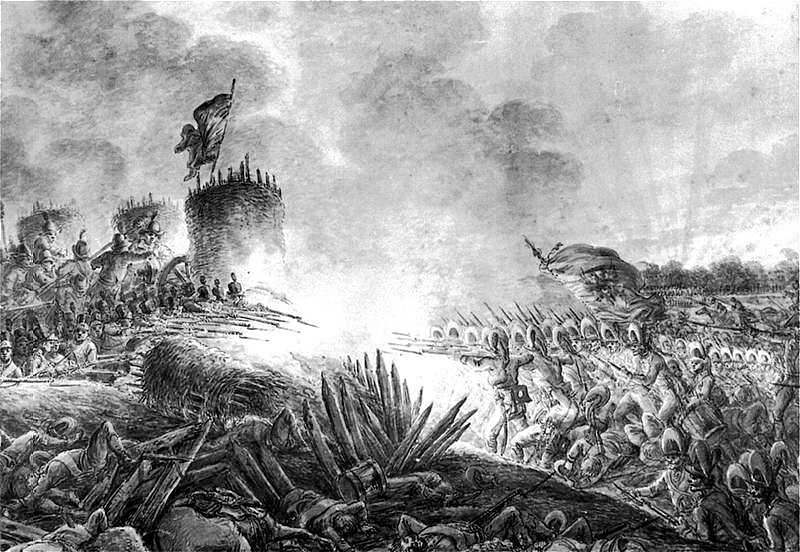The defence of Praga on 4 November 1794, also known as the slaughter of Praga, was the last battle in the history of the Polish-Lithuanian Commonwealth. It was fought on 4 November 1794 by Polish troops under the command of General Józef Zajączek (13,000 soldiers) against Russian troops commanded by Alexander Suvorov, promoted to Field Marshal after the victory, (23,000 soldiers). The defeat of the Polish army marked the opening of the way to Warsaw, which was equivalent to the fall of the Kościuszko Uprising and the final sealing of the partition of the Polish-Lithuanian state.
After the defeat of the defenders, a terrible fate awaited the civilian population. Murder, rape and pillage took place with the consent, or rather on the orders of Alexander Suvorov. Apart from the dominant Polish population, Praga was also inhabited by Jews, whose number is difficult to determine. According to a study written in the interwar period by the historian Emanuel Ringelblum (1900-1944), it was certainly no less than 900 people. The cited author stated that presumably there were 100 documented Jewish victims of the slaughter, both in Praga and in the surrounding forests, where the Jews had taken refuge. However, he maintained at the same time that in reality the number was many times higher. According to the accounts of Polish and Jewish survivors, the Russian troops acted with exceptional brutality, for example murdering the father of a family in front of the mother and children who were taken captive. Sometimes entire families, including servants, were also taken captive.
A census taken after the Partitions of Poland, compiled for poll tax purposes, showed that about 40 Jewish orphans remained in Praga after the passage of the Russian army; the number of half-orphans, however, was much higher. In addition, a large number of houses and inns were burnt down. The impoverishment of the Jewish population was so evident that in 1795 the mayor of Praga issued certificates of exemption from poll tax to all Jewish families who proved that they had lived in Praga before the battle of 4 November 1794.





